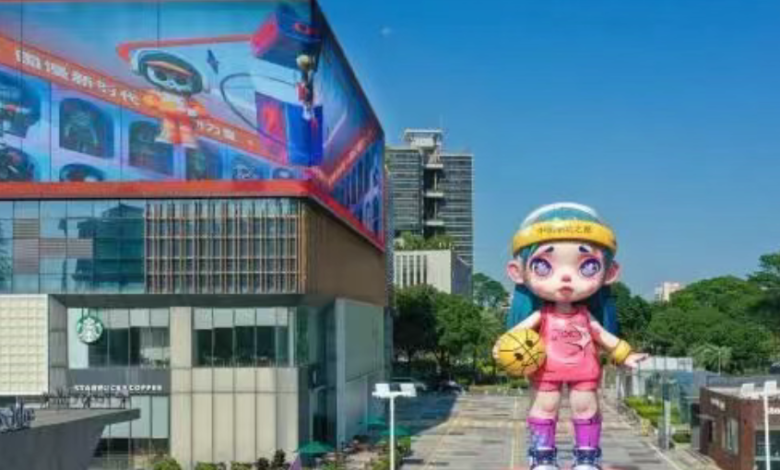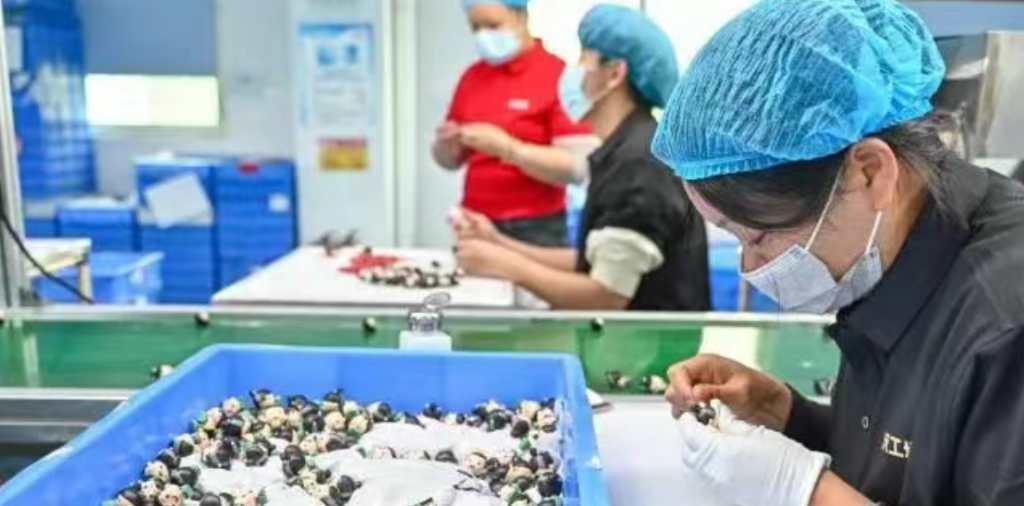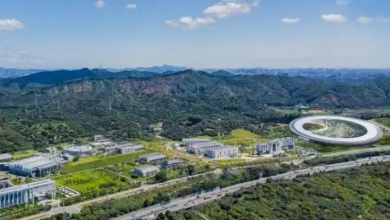From Dongguan to the World: How LABUBU and China’s Designer Toy Industry Became a Global Phenomenon

At a recent Yongle 2025 Spring Auction, a mint-green first-generation collectible LABUBU figurine stunned observers by fetching an impressive RMB 1.08 million (approximately USD 148,000). This record-setting sale was not an isolated incident—it was the latest milestone in a wave of fervor that has swept China’s designer toy industry to the forefront of global pop culture.
Originally conceived as a character in Pop Mart’s THE MONSTERS lineup, LABUBU—with its furry body, mischievous grin revealing nine sharp teeth, and endearingly eerie charm—has evolved into an icon that transcends borders. From Chinese collectors who line up overnight, to Hollywood celebrities proudly showcasing plush LABUBU charms on social media, this quirky character has become a symbol of a larger cultural shift: the rise of Chinese toy brands as global creative powerhouses.
In 2024 alone, Pop Mart International Group operated more than 550 directly-owned stores in over 30 countries, along with 2,000 partner shops and e-commerce channels. Their overseas and Hong Kong, Macau, and Taiwan revenues reached RMB 5.07 billion, marking a staggering 375% year-on-year increase. In the first quarter of 2025, the company reported nearly 500% growth in overseas sales. This growth trajectory reflects not only an explosion in product popularity but a deeper acceptance of Chinese intellectual property (IP) by global consumers.
As the world embraces LABUBU, the heart of this success story lies in Dongguan—a city now widely regarded as the “Designer Toy Capital of China.” Back in 2020, over 30 Dongguan-based suppliers and factories were already producing LABUBU merchandise, collectively generating RMB 2.5 billion in sales. Today, more than 85% of China’s designer toys are manufactured in Dongguan, accounting for a quarter of all global animation derivatives.
Dongguan’s rise is no accident. Over decades, it cultivated a manufacturing ecosystem unmatched in scale and precision. From humble beginnings as an OEM hub during the early years of China’s economic reforms, the city has transformed into a hub of high-value creative production. More than 4,000 toy manufacturers and nearly 1,500 supporting enterprises now operate in Dongguan, making it the largest toy export base in the country.
The scale of the opportunity is hard to overstate. According to the “China Designer Toys and Animation Industry Development Report (2024),” the domestic designer toy market is expected to grow rapidly and exceed RMB 110.1 billion by 2026. Dongguan’s industry alone reached an output value of RMB 11.153 billion in the first eight months of 2024, with over 112 major companies contributing to this growth.
But manufacturing muscle is only part of the story. Dongguan’s success increasingly hinges on technological innovation and cultural creativity. For instance, factories that once relied solely on manual craftsmanship have embraced artificial intelligence to accelerate production. The Dongguan AI Research Institute has pioneered digital modeling techniques that replicate master craftsmen’s skills, reducing new employee training times by 70%. Meanwhile, companies like Guangdong Wis Toys Intelligent Manufacturing Co., Ltd. have opened smart factories where AI-powered workflows have multiplied productivity by up to ten times.

Take, for example, the recent boom in products inspired by the animated blockbuster Ne Zha: Birth of the Demon Child. Dongguan’s factories were inundated with orders for everything from acrylic art sheets to collectible badges and narrative film cards. One company, Wogongchang Culture (Dongguan) Co., Ltd., received initial orders for 1 million units and soon secured new contracts worth more than RMB 100 million—more than its entire revenue for the previous year.
This combination of cutting-edge automation and artistic excellence has enabled Dongguan to capture the imagination of young consumers worldwide. Local companies are also shedding their OEM-only past to create original IP. Dongguan Weishi Cultural Technology Co., Ltd.’s brand Piececool, for instance, has built a name by transforming traditional Chinese culture into premium 3D metal puzzles featuring heritage themes like lion dances and bridal parades. These products are now sold in over 100 countries, with annual revenue growth of around 25%.
Local policymakers have played a crucial role. Recent measures such as the Dongguan Measures to Accelerate the Development of the Designer Toy Industry (Trial) have encouraged original design, IP protection, and cross-sector collaboration—combining toys with tourism, intangible cultural heritage, and sports. This integrated approach aims to cement Dongguan’s status as the world’s designer toy capital.
At cultural showcases like the 21st Shenzhen Cultural Expo, LABUBU and other original characters drew massive crowds, reinforcing the idea that “Made in China” can now stand for creativity and cultural sophistication. Even Thailand recognized LABUBU’s cultural impact, awarding it the title “Amazing Thailand Experience Officer.” Meanwhile, on TikTok, videos featuring the character have amassed billions of views.
This remarkable trajectory—from factory assembly lines to global cult status—illustrates a broader evolution in Chinese manufacturing. No longer content with being the world’s workshop, cities like Dongguan are leveraging technology, creativity, and storytelling to create globally loved brands.
LABUBU’s journey is proof that when world-class manufacturing meets imaginative IP development, Chinese brands don’t just compete—they lead. And as designer toys continue to conquer collectors’ hearts across continents, Dongguan’s factories are quietly shaping a new chapter in cultural exports, where artistry and industry combine to deliver something truly unforgettable.





